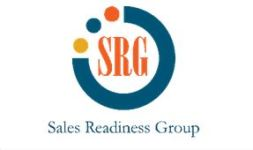ATD Blog
How the Pandemic Has Made Sales Kickoffs Better
Thu Aug 04 2022

For decades, the annual sales kickoff (SKO) has served as the premier event for companies to bring their sales teams together to align around annual priorities and bond as a team. SKO agendas typically include these elements:
Sales strategies
Key priorities
New offerings
Sales trainings
Team building activities
Networking opportunities
As a result of the COVID-19 pandemic, companies had to rethink how to achieve these same goals without an in-person event.
In many respects, rethinking the SKO makes sense. While the traditional in-person SKO set out to achieve the above-listed goals, the format posed four significant challenges:
1. Information overload: Since the SKO was event-based (for instance, a two- or three-day format), it was packed with sessions dominated by PowerPoint presentations. While the content was relevant, the ability to internalize and retain so much information in a condensed period was overwhelming.
2. Lack of collaboration: A key component of learning is the ability to collaborate and share ideas. SKO events’ condensed nature and the group sizes (often 50 or more in a meeting room) are not conducive to sharing ideas and best practices. This situation creates a significant challenge from a learning standpoint because “peer-to-peer” learning based on real-world experiences is powerful.
3. Difficult to measure outcomes: Given the varied topics and brief nature of the typical SKO, it is difficult to measure what skills and knowledge participants took away from the sessions.
4. No reinforcement: While the themes from the SKO were designed to carry forward throughout the year, very few SKOs included formal or informal reinforcement sessions. As a result, the training experience did not capitalize on the most powerful aspects of learning—real-world application and adoption of the strategies and skills presented at the SKO.
In rethinking the SKO, we can’t recreate the in-person team building and networking opportunities; however, we can develop an SKO strategy that allows for a better learning and development experience for the sales team.
Since the COVID-19 pandemic started, we have all had to transform how we engage with clients and each other. We have become increasingly tech-savvy and learned to sell virtually by leveraging meeting platforms and other technologies that allow us to engage and learn from each other. A technology that works well for team learning and engagement is collaborative learning platforms that allow for spaced learning, incorporating micro-learning videos, live online sessions, peer-to-peer engagement, application exercises, and a leaderboard to track everyone's progress.
Leveraging this type of approach, companies can create a virtual SKO that incorporates ongoing cohort sessions where participants can review and discuss concepts and share ideas based on real-world experiences. This approach also allows sales leaders to organize SKO topics with a cadence that addresses the four challenges noted above. Additionally, companies can track activities and award badges to improve completion rates and promote team collaboration.
As opposed to a two- to three-day event, a virtual SKO can take place over three to four weeks, with distinct tracks (for example, strategy, new offerings, and virtual selling) and cohort groups of 25–50 participants. This approach is especially attractive for larger sales teams that operate across multiple time zones.
Keep in mind that creating a virtual SKO is not complicated. It will likely take less time and energy to develop than an in-person event. So, don't let COVID-19 deter you from rethinking your SKO.
Editor’s note: A version of this post originally appeared on the Sales Readiness Group blog.

